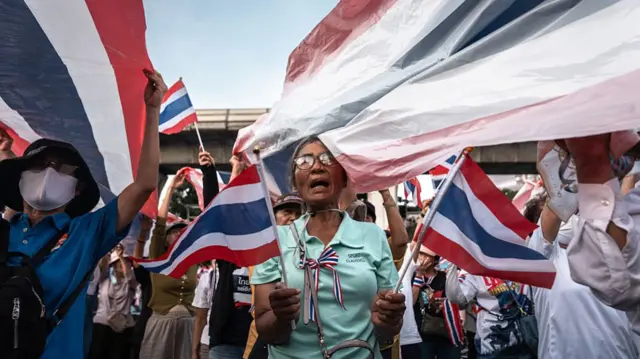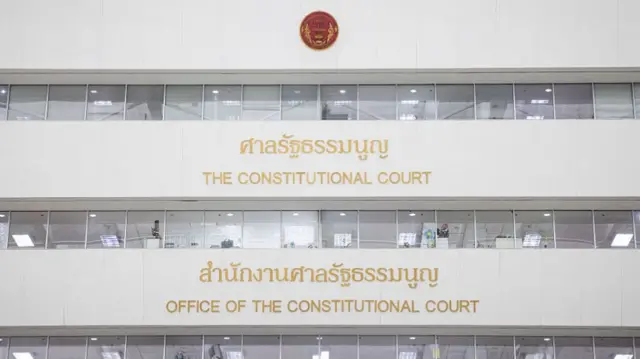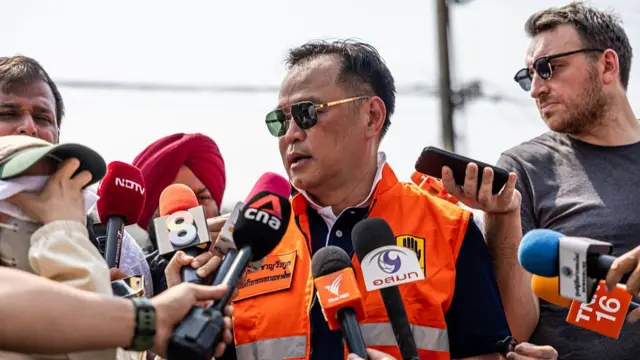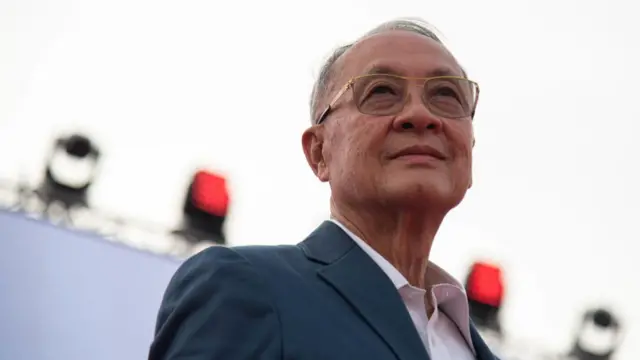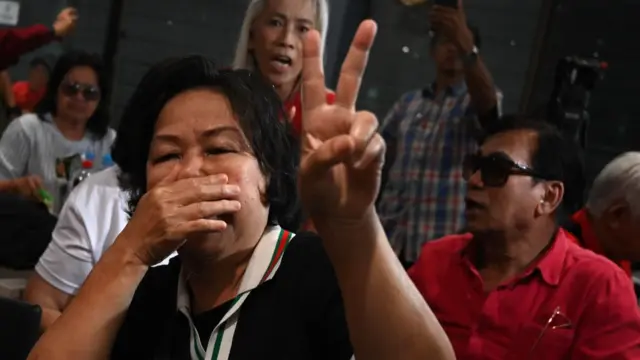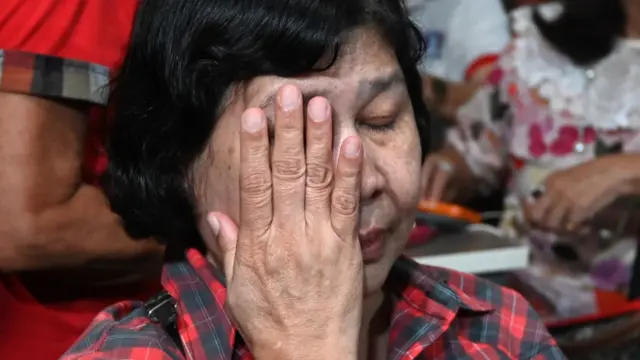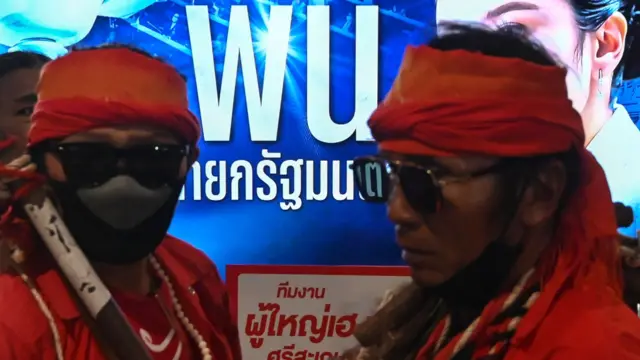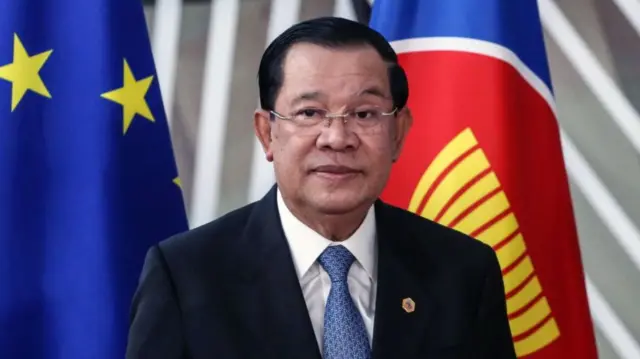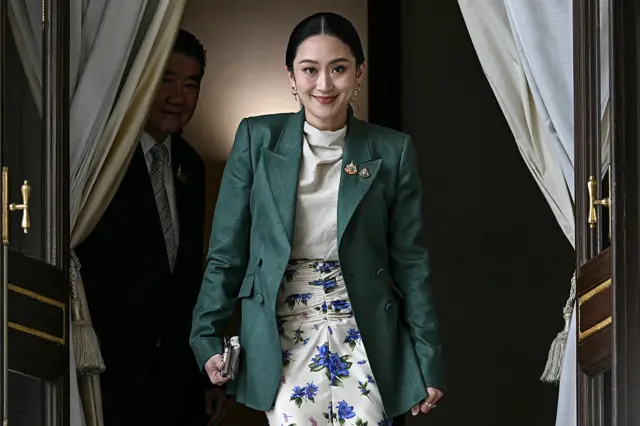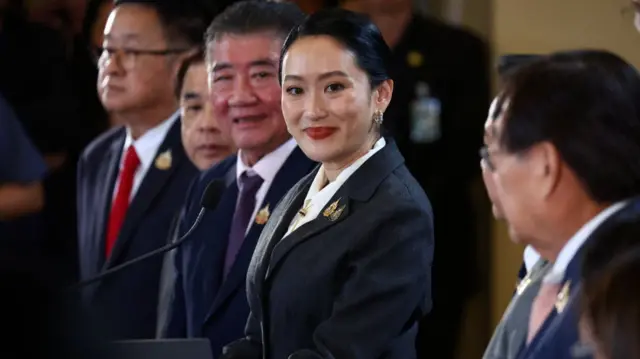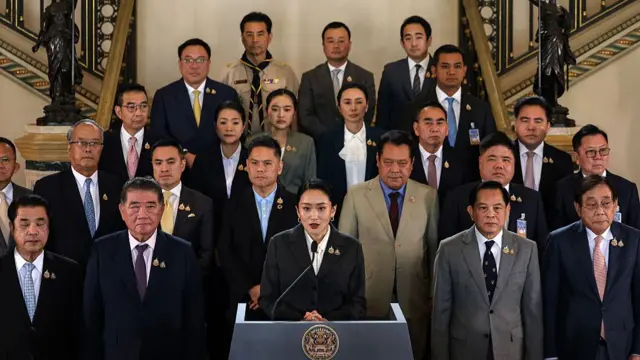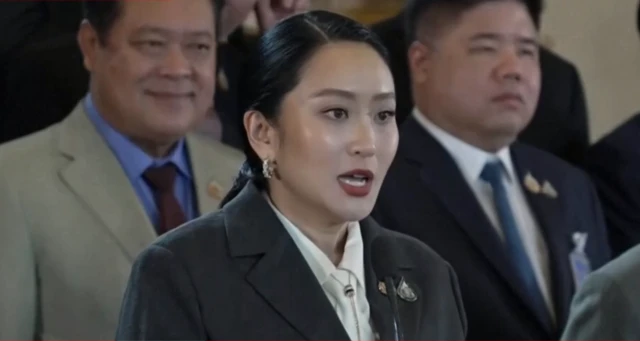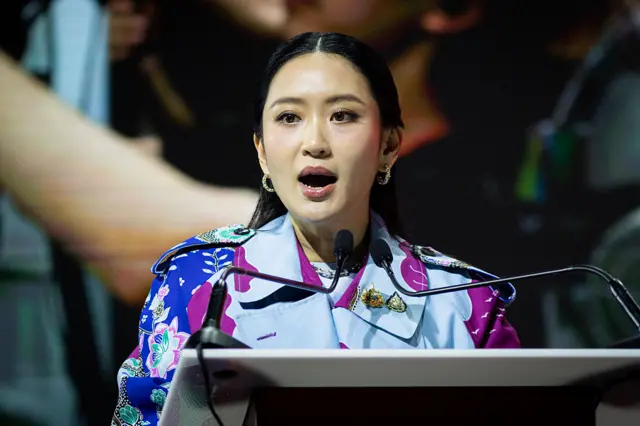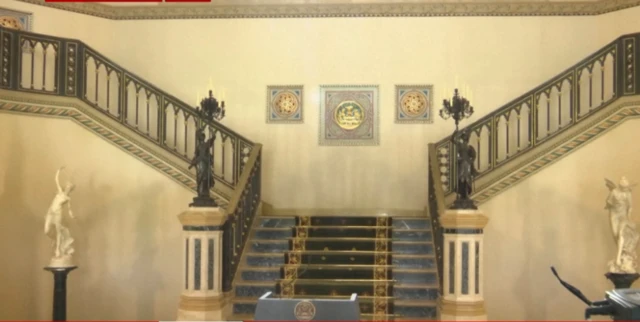Court removes Thai prime minister from officepublished at 12:04 BST 29 August
Thailand's Constitutional Court has voted to sack Paetongtarn Shinawatra over a leaked phone call to former Cambodian leader Hun Sen, in which she called him "uncle" and disparaged a Thai military commander. The verdict immediately removed her from the prime minister's office and dissolved her cabinet.
Dozens of senators filed a petition to the Constitutional Court, claiming that she had violated ethical rules and undermined the country's powerful military at a time when tensions were flaring at the Thai-Cambodian border
Paetongtarn previously defended the call as a "negotiation technique". But the court said that her actions had "caused the public to lose faith and trust". Speaking after the ruling, she acknowledged the court's verdict but maintained that she had meant to "save lives" amid escalating border tensions.
The verdict deals a big blow to the Shinawatra family, which has dominated Thai politics for two decades. She is the fifth Thai prime minister to be removed from office by this court - all of them from administrations backed by her father Thaksin Shinawatra. This has given rise to a widespread belief in Thailand that the court nearly always rules against those seen as a threat to conservative forces, South East Asia correspondent Jonathan Head says.
Thai lawmakers are now scrambling to vote for a new prime minister. There are five eligible candidates - all from a pre-selected list.
We're wrapping up our live coverage of a momentous day in Thailand. Further updates can be found in our article: Thai court removes PM over leaked phone call with Cambodian leader
